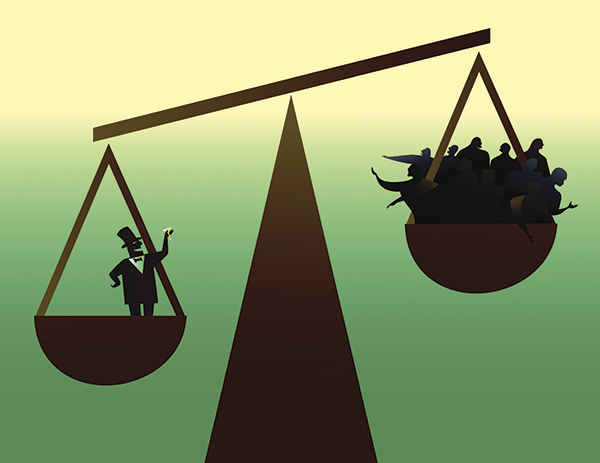Ever heard of agency theory? It’s basically how people explain out the various relationships at work, with the primary actors being “shareholders” and “company executives.” I think the former is principals and the latter is agents. You could probably fill a library with all the things I don’t really know about finance. Anyway.
Here’s the problem with this whole agency theory deal. It ties directly into the “Stakeholders Problem.” That one applies to rank and file employees too. Basically, on every project, you have all these stakeholders. There’s the main manager, but probably a few other bosses too. And then there’s always someone managing all the assets who keeps hitting you about deadlines. Then your stakeholders have stakeholders — i.e. their bosses — and eventually every move is seemingly being analyzed by 19 different people.
What I just described shouldn’t be normative, but it’s the closest definition most of us have to “What is work, really?” That and “chimp rape.”
And now we’ll add another piece to this whole messy little puzzle.
Agency theory in a HBR cover story
Nice title on this one: “The Error At The Heart Of Corporate Leadership.” I can count like 22 such errors, but I’m interested to see what the article says! Get a little ways down and here’s this:
Attributing ownership of the corporation to shareholders sounds natural enough, but a closer look reveals that it is legally confused and, perhaps more important, involves a challenging problem of accountability. Keep in mind that shareholders have no legal duty to protect or serve the companies whose shares they own and are shielded by the doctrine of limited liability from legal responsibility for those companies’ debts and misdeeds. Moreover, they may generally buy and sell shares without restriction and are required to disclose their identities only in certain circumstances. In addition, they tend to be physically and psychologically distant from the activities of the companies they invest in. That is to say, public company shareholders have few incentives to consider, and are not generally viewed as responsible for, the effects of the actions they favor on the corporation, other parties, or society more broadly. Agency theory has yet to grapple with the implications of the accountability vacuum that results from accepting its central—and in our view, faulty—premise that shareholders own the corporation.
Heady stuff there.
So wait, the entire premise of corporations makes no sense?
Essentially.
See why this would be a problem?
Like, if the basic idea that all this is rooted in — agency theory! — in and of itself does not make sense, then how could individual elements of work ultimately make sense? The very first brick in the building of “a corporation” is wobbly and loose.
Of course from there you’re going to have issues around priority and unclear job roles. The whole basis of the thing doesn’t even make sense. It’s just designed to let the same 88 white guys make all the money, which they probably would have done anyway. And you wonder why a bunch of people are nervous about their future, or socially isolated as hell?
But isn’t agency theory essential to the idea of capitalism?
In some ways, yes. And while I like capitalism conceptually, it doesn’t work for a lot of people the way it’s currently set up. (Winner take all, essentially.) It’d be cool if we had more B-Corps and stuff like that, but the issue is … those 88 rich white guys want to get even richer, and a B-Corp might be a slower path to that spot. We love us the workaholic and deify the quantity-based high achiever as a beacon of success. Agency theory is just a convenient way to look at everything and underscore all that. If you ever become a “stakeholder” or “shareholder,” you get to make moves — even if the moves make no contextual sense.
And when you’re not a stakeholder but down at the “I actually do work” level, well, that’s where agency theory donkey punches you a few times. Now every project is “urgent” — “A stakeholder needs it!” — and any sense of priority alignment flew out the window, with productivity not super far behind. When your boss is bellowing and ringing the bell, that’s agency theory punching you in the throat. Other factors at play, of course, but agency theory is right up there.
